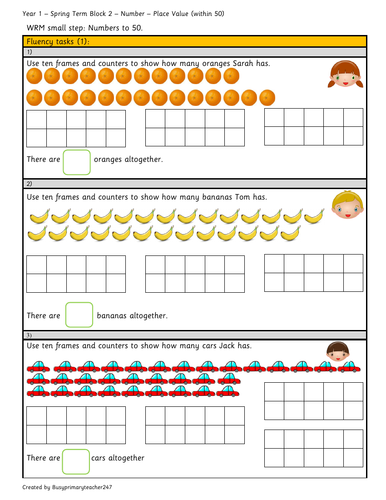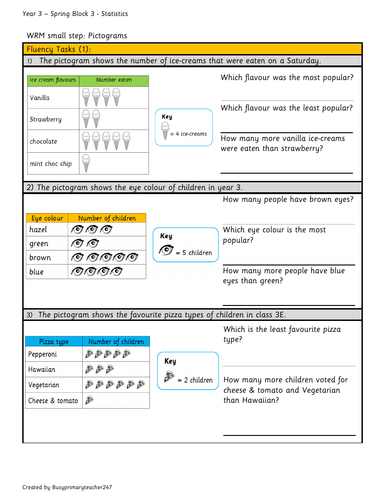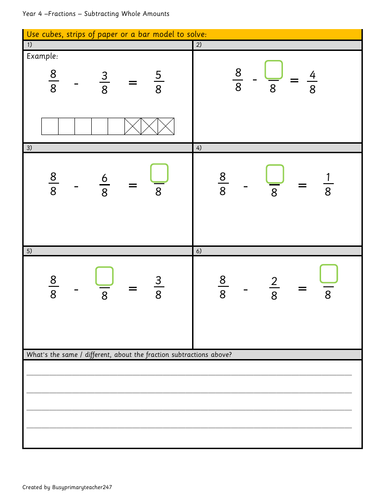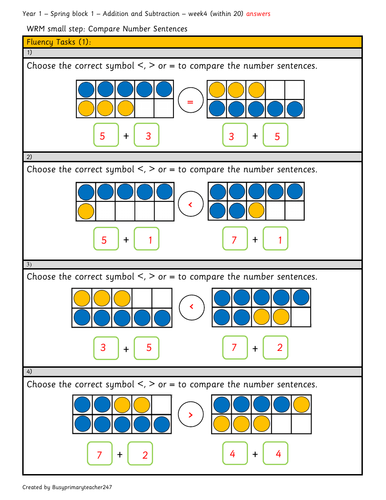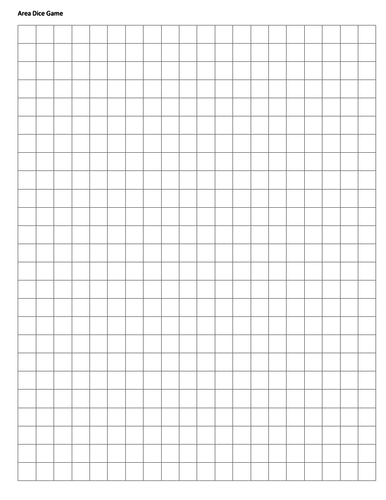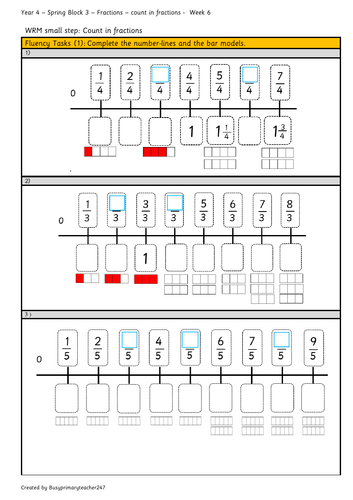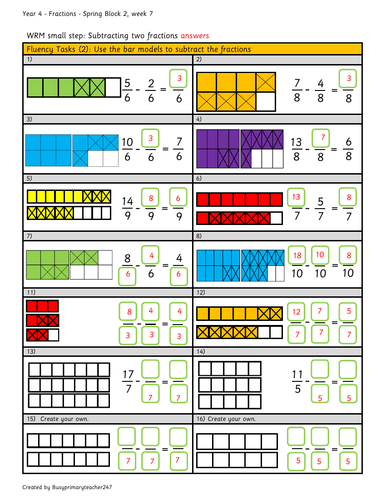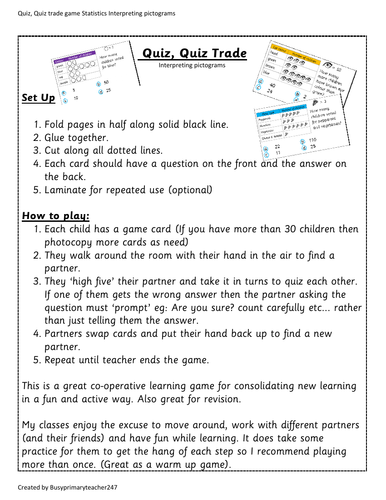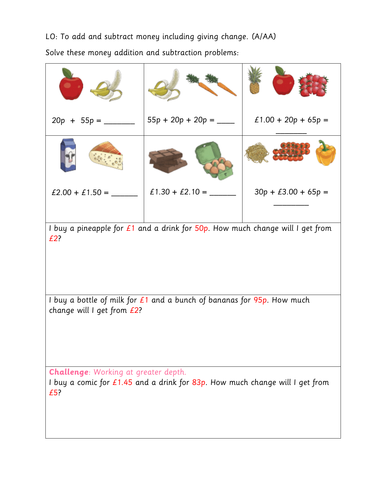132Uploads
174k+Views
66k+Downloads
Mathematics

Year 1 – Spring Block 2 – Number Place Value (Within 50) - week 5- numbers to 50
This resource follows the concrete-pictorial-abstract approach to Maths Mastery and also includes reasoning questions. It is linked to WRM small steps: Numbers to 50.
Curriculum links:
- Count to 50 forwards and backwards, beginning with 0 or 1, or from any number.
- Count, read and write numbers to 50 in numerals.
- Identify and represent numbers using objects and pictorial representations including the number line, and use the language of: equal to, more than, less than (fewer), most, least.
I hope you find this resource useful,
Your feedback is always welcome :)

Year 3 - interpreting pictograms (1)
This resources enables children to read and interpret information from pictograms, make comparisons and ask questions about data.
WRM Small Step: pictograms
Curriculum links:
-Interpret and present data using bar charts, pictograms and tables.
-Solve one-step and two-step questions [for example, ‘How many more?’ and ‘How many fewer?’ using information presented in scaled bar charts and pictograms and tables.
Enjoy!
Your feedback is always welcome x
Edited
Error on Q4 has been corrected.

Year 4 - Subtracting fractions
This resource uses a concrete – pictorial – abstract approach to help children gain fluency and mastery.
Curriculum links:
Solve problems involving increasingly harder fractions to calculate quantities, and fractions to divide quantities, including non-unit fractions where the answer is a whole number.
Add and subtract fractions with the same denominator.
Your feedback is always welcome x

Year 1 - Addition and Subtraction (within 20) - block 1 - Spring (week 1)
These resources cover Year 1 - Addition and Subtraction (within 20) - block 1 - Spring (week 1).
They follow the CPA approach to mastery and link to the first two WRM small steps: 'Add by counting on' and 'Find and make number bonds'.
National Curriculum links:
- Represent and use number bonds and related subtraction facts within
20
- Read, write and interpret mathematical statements involving addition (+), subtraction (-) and equals (=) signs.
- Add and subtract one-digit and two-digit numbers to 20, including zero.
- Solve one-step problems that involve addition and subtraction, using concrete objects and pictorial representations, and missing number problems such as 7= ꙱ –9
Enjoy!
Your feedback is always welcome x

Year 1 - Spring block 1 - compare number sentences (week 4)
This 5-page resource follows the concrete-pictorial-abstract approach to Maths Mastery and also includes reasoning and answers.
Linked to small step 'number sentences' for week 4, Spring block 1.
Curriculum links:
-Represent and use number bonds and related subtraction facts within 20 -Read, write and interpret mathematical statements involving addition (+), subtraction (-) and equals (=) signs.
-Add and subtract one-digit and two-digit numbers to 20, including zero. -
Solve one-step problems that involve addition and subtraction, using concrete objects and pictorial representations, and missing number problems such as 7= ꙱–9
I hope you find this resource useful,
Your feedback is always welcome :)

Area Dice Game
This is a great game for 1-2 players.
Equipment
-squared paper
-2 dice
-coloured pencils/ felt tips (textas)
Instructions
- Each player chooses a different coloured pencil / felt tip
- Players take it in turns to roll the dice.
- They use the number on each dice to colour in the number of squares, and write the area in the
middle of the shape.eg
- Game ends when players run out of room to draw.
- Winner is the player who has used the largest area/most squares.

Year 1 - Spring block 1 - Addition & Subtraction (Within 20) - week 2
These resources cover Year 1 - Addition and Subtraction (within 20) - block 1 - Spring (week 2).
They follow the CPA approach to mastery and link to the first two WRM small steps: 'Add by making 10' and 'Subtraction – Not crossing 10'.
National Curriculum links:
- Represent and use number bonds and related subtraction facts within
20
- Read, write and interpret mathematical statements involving addition (+), subtraction (-) and equals (=) signs.
- Add and subtract one-digit and two-digit numbers to 20, including zero.
- Solve one-step problems that involve addition and subtraction, using concrete objects and pictorial representations, and missing number problems such as 7= ꙱ –9
Enjoy!
Your feedback is always welcome x
Images created by Busyprimaryteacher247
Other images sourced from: https://wpclipart.com/index.html
Bundle

Year 3 - Spring block 1 - Multiplication and Division week 1-3 bundle includes bonus resource
This set of resources is for the first 3 weeks of Spring term. They follow the WRM concrete-pictorial-abstract method of Maths Mastery. It contains fluency, reasoning, and problem-solving tasks.
The worksheets are differentiated between lower ability and age-related and the answers are included :)
I've included a bonus set of question strips that are great to use as extension tasks or for summative assessment at the end of the week (At this stage they are not differentiated).
Links directly to WRM small steps:
- Comparing statements
Related calculations
Multiply 2-digits by 1-digit (1)
Multiply 2-digits by 1-digit (2)
Divide 2-digits by 1-digit (1)
Divide 2-digits by 1-digit (2)
Divide 2-digits by 1-digit (3)
Scaling
How many ways?
National curriculum links:
-Recall and use multiplication and division facts for the 3, 4 and 8 multiplication tables.
-Write and calculate mathematical statements for multiplication and division using the multiplication tables they know, including for two-digit numbers times one-digit numbers, using mental and progressing to formal written methods.
-Solve problems, including missing number problems, involving multiplication and division, including positive integer scaling problems and correspondence problems in which n objects are connected to m objectives.
I hope you find these resources helpful!
Your feedback is always welcome x

Year 1 – Spring Block 2 – Number Place Value (Within 50) - week 5 - planning incl.
These resources follow the concrete-pictorial-abstract approach to Maths Mastery and also include reasoning questions and planning.
Linked to WRM small steps:
- Numbers to 50
-Tens and ones
- Represent numbers to 50
Curriculum links:
- Count to 50 forwards and backwards, beginning with 0 or 1, or from any number.
- Count, read and write numbers to 50 in numerals.
- Identify and represent numbers using objects and pictorial representations including the number line, and use the language of: equal to, more than, less than (fewer), most, least.
I hope you find this resource useful,
Your feedback is always welcome :)

Year 4 – Spring Block 3 – Fractions - week 6 - Count in fractions
This resource follows the concrete-pictorial-abstract approach to Maths Mastery and also includes reasoning questions. It is differentiated two ways and linked to WRM small step: Count in fractions.
Curriculum links:
- Recognise and show, using diagrams, families of common equivalent fractions.
I hope you find this resource useful,
Your feedback is always welcome :)

Subtracting 2 fractions (2)
This resource supports Year 4 WRM small step ‘Subtracting two fractions’, with varied fluency 2 questions. It follows a concrete – pictorial – abstract approach.
It includes differentiated worksheets and answers.
Curriculum links
• Solve problems involving increasingly harder fractions to calculate quantities, and fractions to divide quantities, including non-unit fractions where the answer is a whole number.
• Add and subtract fractions with the same denominator.
I hope you find this resource useful x

Quiz, Quiz Trade activity cards - Interpreting pictograms
This is a great co-operative learning game for consolidating new learning in a fun and active way. Also great for revision.
My classes enjoy the excuse to move around, work with different partners (and their friends) and have fun while learning. It does take some practice for them to get the hang of each step so I recommend playing more than once. (Great as a warm up game).

Year 1 Counting in 2s
This resource contains varied fluency worksheets that allow children to practise the skill of counting in 2s using concrete, pictorial and abstract methods. Also included, are reasoning and problem-solving questions, and answer sheets.
WRM links: Year 1 Spring Block 2, Number, Place Value, Numbers within 50 (week 7)
Small Step: Count in 2s
Curriculum Links
• Count to 50 forwards and backwards, beginning with 0 or 1, or from any number.
• Count, read and write numbers to 50 in numerals.
• Given a number, identify one more or one less.
• Identify and represent numbers using objects and pictorial representations including the number line, and use the language of: equal to, more than, less than (fewer), most, least.
• Count in multiples of twos, fives and tens.
I hope you find this resource useful.
Enjoy x

Year 1 Counting in 5s
This resource contains varied fluency worksheets that allow children to practise the skill of counting in 5s using concrete, pictorial and abstract methods. Also included, are reasoning and problem-solving questions, and answer sheets.
WRM links: Year 1 Spring Block 2, Number, Place Value, Numbers within 50 (week 7)
Small Step: Count in 5s
Curriculum Links
• Count to 50 forwards and backwards, beginning with 0 or 1, or from any number.
• Count, read and write numbers to 50 in numerals.
• Given a number, identify one more or one less.
• Identify and represent numbers using objects and pictorial representations including the number line, and use the language of: equal to, more than, less than (fewer), most, least.
• Count in multiples of twos, fives and tens.
I hope you find this resource useful.
Enjoy x

Year 3 - Spring week 1 - Multiplication and Division
This set of resources follows the concrete-pictorial-abstract method of Maths Mastery. It contains fluency, reasoning and problem-solving tasks.
The worksheets are differentiated between lower ability and age-related and the answers are included :)
Links directly to WRM small steps:
- Comparing statements
- Related calculations
- Multiply 2-digits by 1-digit (1)
National curriculum links:
-Recall and use multiplication and division facts for the 3, 4 and 8 multiplication tables.
-Write and calculate mathematical statements for multiplication and division using the multiplication tables they know, including for two-digit numbers times one-digit numbers, using mental and progressing to formal written methods.
-Solve problems, including missing number problems, involving multiplication and division, including positive integer scaling problems and correspondence problems in which n objects are connected to m objectives.
I hope you find these resources helpful!
Your feedback is always welcome x

Year 4 - Multiplication and Division - Spring - block 1- Multiplication and Division - week 1
This resource covers the first 3 small steps for year 4, Spring, block 1 Multiplication, and Division.
This pack contains a series of differentiated worksheets (and answers) that follow the concrete, pictorial and abstract method for maths mastery. They also include reasoning and problem-solving.
WRM Small Steps:
- 11 and 12 times-table
- Multiply 3 numbers
- Factor pairs
Curriculum links:
- Recall and use multiplication and division facts for multiplication tables up to 12 ×12.
- Use place value, known and derived facts to multiply and divide mentally, including: multiplying by 0 and 1; dividing by 1; multiplying together three numbers.
- Recognise and use factor pairs and commutativity in mental calculations.
I hope you find these useful,
Your feedback is always welcome x

Year 4 - Spring - Block 1 - Multiplication and Division - week 2 - differentiated
This pack contains a series of differentiated worksheets for year 4 block 1 Spring term (and answers) that follow the concrete, pictorial and abstract method for maths mastery. They also include reasoning and problem-solving.
WRM Small Steps:
- Efficient multiplication
- Written Methods
- Multiplying 1-digit by 2-digits
Curriculum links:
- Recall and use multiplication and division facts for multiplication tables up to 12 ×12.
- Use place value, known and derived facts to multiply and divide mentally, including multiplying by 0 and 1; dividing by 1; multiplying together three numbers.
- Recognise and use factor pairs and commutativity in mental calculations.
- Multiply two digit and three digit numbers by a one digit number using formal written layout.
- Solve problems involving multiplying and adding, including using the
distributive law to multiply two digit numbers by one digit, integer scaling
problems and harder correspondence problems such as n objects are connected to m objects.
I hope you find these useful,
Your feedback is always welcome x

Year 3 - To add and subtract money including giving change
Worksheet focusing on adding and subtracting money.
Matches Rising Star's Objective: To add and subtract money including giving change.
Includes working at greater depth question

Year 3 Question strips linked to block 3 - Multiplication and Division (Autumn Week 9)
A set of 5 questions strips based on a maths mastery approach (concrete - pictorial - abstract) for Multiplication and Division (Autumn term, week 9).
Links to:
Year 3 National curriculum objectives:
- Recall and use multiplication and division facts for the 3, 4 and 8 multiplication tables.
- Write and calculate mathematical statements for multiplication and division using the multiplication tables they know, including for two-digit numbers times one-digit numbers, using mental and progressing to formal written methods.
- Solve problems, including missing number problems, involving multiplication and division, including positive integer scaling problems and correspondence problems in which 'n' objects are connected to 'm' objectives.
Enjoy!
Your feedback is always welcome x

Year 3 - Spring block 1 - week 2 - Multiplication and Division
This set of resources follows the concrete-pictorial-abstract method of Maths Mastery. It contains fluency, reasoning, and problem-solving tasks.
The worksheets are differentiated between lower ability and age-related and the answers are included :)
Links directly to WRM small steps:
- Multiply 2-digits by 1-digit (2)
- Divide 2-digits by 1-digit (1)
- Divide 2-digits by 1-digit (2)
National curriculum links:
-Recall and use multiplication and division facts for the 3, 4 and 8 multiplication tables.
-Write and calculate mathematical statements for multiplication and division using the multiplication tables they know, including for two-digit numbers times one-digit numbers, using mental and progressing to formal written methods.
-Solve problems, including missing number problems, involving multiplication and division, including positive integer scaling problems and correspondence problems in which n objects are connected to m objectives.
I hope you find these resources helpful!
Your feedback is always welcome x

